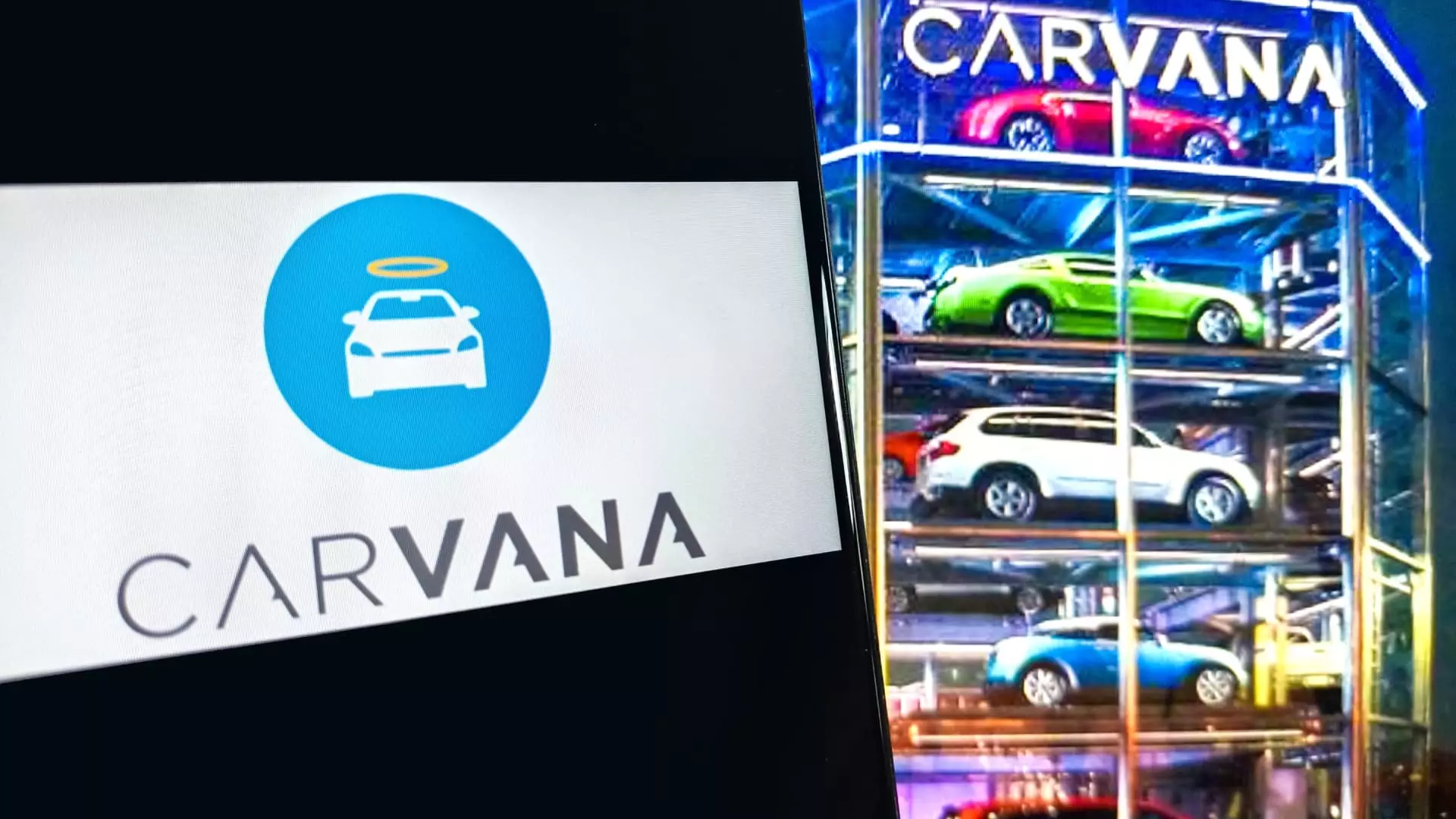In a shocking twist to the narrative of Carvana’s purported resurgence, Hindenburg Research has declared a significant short position against the online used-car retailer. Their report, which boldly labels Carvana’s turnaround as a “mirage,” raises serious questions about the financial health of a company that has seen its shares skyrocket nearly 400% in 2023. This bold assertion implies that the gains may not reflect genuine operational improvements but instead mask a series of questionable financial tactics aimed at propping up sagging performance.
Hindenburg’s analysis focuses particularly on Carvana’s loan issuance practices—specifically, the sale of loans to entities tied to its own leadership. The relationship between CEO Ernie Garcia III and his father, Ernest Garcia II, introduces a complex dynamic that raises ethical concerns. While family ties can often strengthen a business, in this case, they may also create avenues for potential self-dealing and manipulation of financial records. Hindenburg contends that up to $800 million in loans may have been sold to an undisclosed party related to the Garcia family, suggesting a lack of transparency that is alarming for potential investors.
Moreover, Hindenburg’s investigation points to a troubling pattern in Carvana’s loan servicing practices. The report claims that the company has been extending loans to borrowers as a means of masking a growing number of delinquencies. By granting these extensions through a loan servicer affiliated with DriveTime—another Garcia-related entity—Carvana may be artificially inflating its apparent profitability. This tactic of deferring recognition of financial distress could provide a temporary veneer of health, yet it poses significant risks for both the company and its investors down the road.
The ramifications of these practices are deep-seated. Investors must grapple with the potential for hidden liabilities that could resurface when the true extent of loan defaults becomes evident. The suggestion that the Garcias may be enriching themselves at the expense of shareholders introduces a further layer of mistrust. For a company that went public only a few years ago, the implications of such financial mismanagement could prove catastrophic.
The Garcia family’s history is another point of contention. Ernest Garcia II’s troubled past, which includes a guilty plea related to bank fraud, raises uncomfortable questions about his legacy. Despite the establishment of Carvana as a modern vehicle retailer since its 2017 spinoff from DriveTime, parallels to previous controversies persist. Allegations of a “pump-and-dump” scheme designed to benefit the Garcias at the expense of regular investors could undermine confidence in the company’s leadership.
With Carvana heavily reliant on DriveTime for financing and servicing operations, the intertwined nature of these entities invites scrutiny. Profit-sharing agreements and transactions between the two companies risk blurring the lines of accountability, potentially leading to conflicts of interest that harm investor trust.
As the shadows of suspicion loom over Carvana’s operations, potential investors must approach the company’s resurgence with caution. The recent claims made by Hindenburg Research demand a critical evaluation of not only the company’s financial statements but also the integrity of its leadership. If the allegations hold weight, Carvana’s recent gains may be nothing more than an elaborate façade—a cautionary tale of how quick gains can lead to lasting losses when built on shaky foundations. In the end, transparency and accountability are paramount, and without them, dreams of success in the auto retail space may quickly turn to disillusionment.

